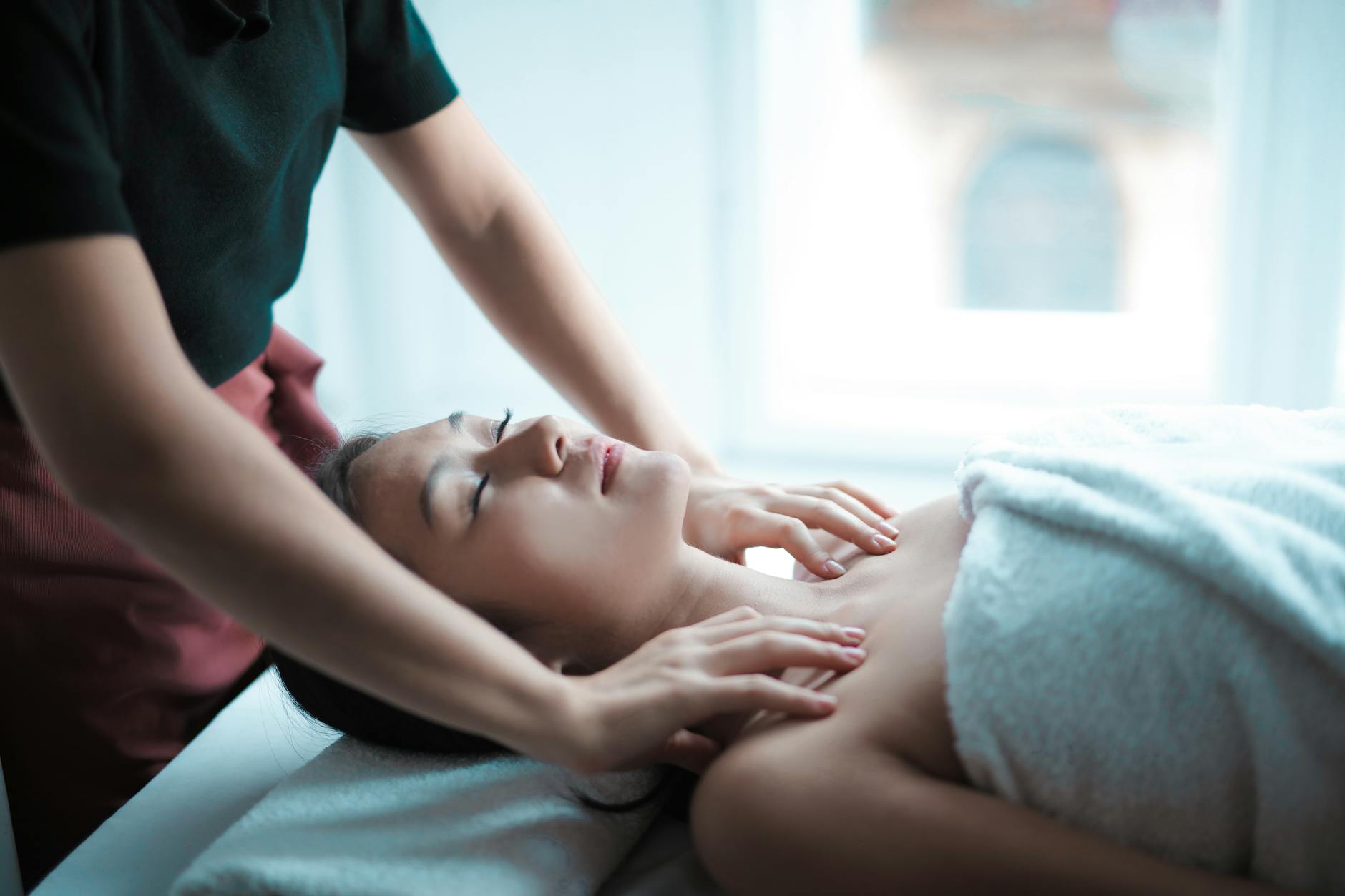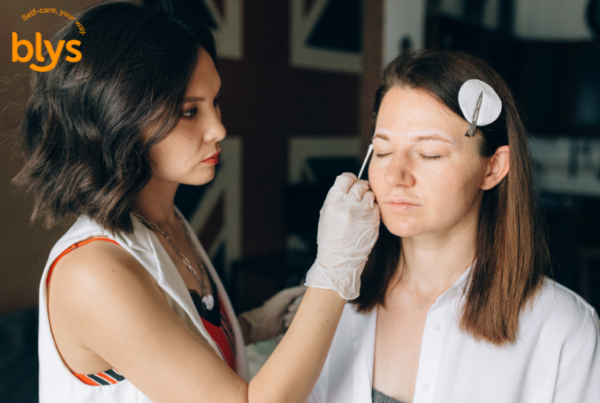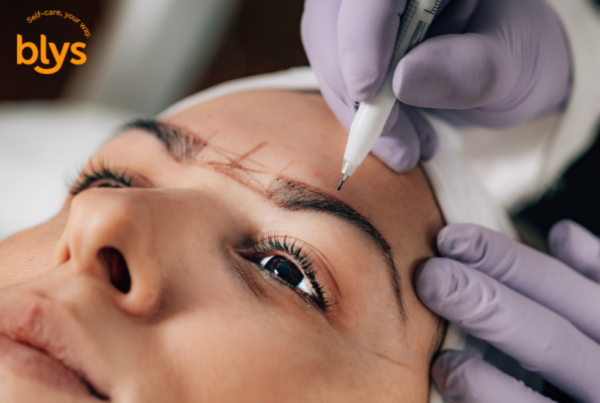
Aromatherapy massage is more than a pampering treat. It blends the power of scent therapy with the healing touch of massage, creating a sensory experience that works on both the body and mind. By using essential oils tailored to individual needs, this treatment aims to ease tension, lift mood, and promote overall wellbeing.
In recent years, more Brits, have turned to aromatherapy massage as a natural way to manage stress, improve sleep, and support emotional balance. It’s not just about relaxing muscles—it’s about supporting mental clarity, better moods, and quality rest.
While many are familiar with lavender or eucalyptus oils, there’s much more to this practice than commonly known. Below are 10 little-known facts about aromatherapy massage that highlight just how powerful and personal this treatment can be.
1. Your Nose Sends Messages Straight to the Brain
One of the most fascinating things about aromatherapy massage is how quickly the brain responds to scent. When you inhale essential oils, the molecules travel through the nasal cavity and activate receptors in the olfactory system. These receptors send direct signals to the limbic system, the part of the brain involved in emotions, memory and behaviour.
This connection is why a single scent can instantly shift your mood or bring back a strong memory. It is not just a psychological reaction but a biological one. The limbic system plays a key role in how we feel, which makes scent a powerful tool for emotional wellbeing.
During a massage, this process becomes even more effective. As your body relaxes through physical touch, your brain becomes more open to the effects of essential oils. The calming or energising properties of each oil work in sync with the massage to support a deeper sense of ease.
According to a study on the effects of aromatherapy on the nervous system, scent-based therapies can influence mood, stress levels and even physical responses like heart rate and blood pressure.
2. Lavender Isn’t the Only Oil That Calms
Lavender might be the best-known oil for relaxation, but it’s far from the only one with calming effects. Several other essential oils used in massage therapy can help ease tension, soothe anxiety, and support emotional balance—sometimes even more effectively depending on the person.
Each oil has a unique chemical makeup that interacts with the body and brain in specific ways. That’s why the scent you’re drawn to often aligns with what your body needs most.
Here are a few oils commonly used for stress relief massage and how they work:
| Essential Oil | Main Effect | Ideal For |
| Bergamot | Uplifting, reduces tension | Stress, low mood |
| Ylang-Ylang | Deep relaxation, calming | Anxiety, restlessness |
| Clary Sage | Balancing, tension-reducing | Hormonal stress, emotional overload |
| Marjoram | Muscle relief, soothing | Physical tension, post-exercise aches |
| Frankincense | Grounding, meditative | Emotional fatigue, mental fog |
The right oil can make all the difference. Some people feel better with citrusy blends, while others benefit from earthy or floral notes.
Curious which oil suits you best? Our therapists can help customise your massage based on your mood, lifestyle, and wellness goals.
3. Aromatherapy Can Improve Sleep Quality
If you struggle to fall asleep or wake up feeling unrested, aromatherapy massage might be more helpful than you think. Certain essential oils, particularly lavender and vetiver, have shown promise in improving both sleep onset and quality.
Lavender is known for its ability to promote deeper, longer sleep. Its calming compounds interact with the nervous system, helping to slow heart rate and lower blood pressure—both essential for winding down. Vetiver, a lesser-known but powerful oil, has grounding properties that ease restlessness and calm racing thoughts.
A recent randomised controlled trial on essential oils and sleep found that inhalation of lavender and vetiver significantly improved sleep latency and quality, especially in participants with sleep disturbances. These effects were even more noticeable when combined with massage.
This makes aromatherapy massage an appealing option for people juggling long work hours, rotating shifts, or parenting duties. Whether you’re a professional burning the candle at both ends or someone simply in need of better rest, incorporating essential oils into your massage routine could be a simple, natural step toward better sleep.
If better rest is your goal, massage has been shown to improve sleep quality by calming the nervous system and easing tension.
4. It’s Both Relaxing and Anti-Inflammatory
Aromatherapy massage is often praised for its calming effects, but certain essential oils also offer anti-inflammatory benefits that support physical recovery. When used during massage, these oils may help reduce swelling, ease joint stiffness and soothe muscle discomfort.
A study on essential oils and inflammation highlighted several oils known for their anti-inflammatory properties:
- Eucalyptus: Cooling and muscle-soothing. Helps with aches and tension.
- Ginger: Warming and circulation-boosting. Ideal for stiffness or fatigue.
- Thyme: Shown to suppress inflammatory enzymes.
- Turmeric: May help reduce inflammation in both muscles and joints.
These oils contain active compounds like 1,8-cineole and zingiberene, which may help calm the body’s inflammatory response.
When paired with massage, these essential oils do more than relax the mind—they actively support muscle recovery and reduce discomfort. This makes aromatherapy massage especially helpful after long workdays, intense exercise or periods of high physical stress.
5. Aromatherapy Affects the Autonomic Nervous System
One of the lesser-known benefits of aromatherapy is its effect on the autonomic nervous system—the system responsible for managing unconscious functions like breathing, heart rate and digestion. This system has two main branches: the sympathetic nervous system, which controls the body’s stress response, and the parasympathetic nervous system, which promotes relaxation and recovery.
Scent therapy, especially when used during massage, can help shift the body from a state of high alert (sympathetic) to a state of calm and rest (parasympathetic). This transition is key to supporting physical and emotional recovery.
Inhaling essential oils like lavender, rose or chamomile has been shown to lower heart rate and blood pressure while promoting a state of calm. This is not just anecdotal. A systematic review on aromatherapy’s effects on the nervous system found that essential oils can significantly reduce sympathetic activity while enhancing parasympathetic function.
By supporting this shift in the nervous system, aromatherapy massage helps the body move out of a stress state and into a space where healing, rest and recovery are more easily achieved.
Scent-based therapies are just one way massage supports wellbeing. Massage can also help strengthen your immune system through improved circulation and reduced stress.
6. The Oil Blend Matters
In aromatherapy massage, it’s not just about the scent—it’s about the blend. Essential oils like lavender or peppermint deliver the therapeutic benefits, but they must be diluted with carrier oils before use.
Carrier oils make essential oils safe for the skin and add moisture and smoothness during massage. Common options include:
- Sweet almond oil: Rich in vitamin E, suits most skin types.
- Grapeseed oil: Light, non-greasy, ideal for oily skin.
- Jojoba oil: Mimics the skin’s natural oils, great for sensitive skin.
Essential oils are highly concentrated and should never be applied directly to the skin without dilution.
Therapists at Blys use high-quality, skin-safe blends that combine effective carrier oils with carefully selected essential oils. Each blend is designed to suit specific needs—whether for stress relief, improved sleep or muscle tension.
Aromatherapy can be enjoyed solo or shared. Here’s how couples massage works for therapists and what to expect during a shared session.
7. Citrus Scents Can Boost Focus and Energy
Aromatherapy is not only for relaxation. Certain essential oils can improve focus, lift mood and increase energy, especially when used in the morning or during a midday slump.
Citrus oils such as lemon and sweet orange have crisp, refreshing scents that stimulate the senses and reduce fatigue. Peppermint is another popular choice for enhancing alertness and mental clarity.
Here are some energising oils and what they support:
- Lemon: Helps sharpen focus and clear the mind.
- Sweet orange: Promotes a positive mood and reduces tiredness.
- Peppermint: Encourages mental clarity and fresh thinking.
These blends suit clients who prefer to feel energised after a massage. They are especially helpful for people with early starts, demanding schedules or long hours at work. A well-chosen oil can provide a refreshing mental lift that lasts.
8. Aromatherapy Massage Can Ease Menstrual Discomfort
For those experiencing monthly discomfort, aromatherapy massage may offer gentle and natural relief. Certain essential oils, particularly clary sage and lavender, have been shown to help reduce menstrual cramps and ease premenstrual symptoms.
A clinical study on aromatherapy and menstrual pain found that abdominal massage using these oils significantly lowered both the intensity and duration of cramps. Clary sage contains antispasmodic properties that may help relax the muscles of the uterus. Lavender supports relaxation and helps manage tension during hormonal shifts.
This type of massage can be especially helpful in the days leading up to and during menstruation, when discomfort and mood changes are more common. It may also encourage better rest, which can be harder to achieve at this time of the month.
Aromatherapy is not just an indulgence. There is science behind it, and for many, it provides a practical and comforting way to manage period-related discomfort.
9. Regular Treatments Can Build Long-Term Resilience
Aromatherapy massage is not only effective in the moment. When done regularly, it may help build long-term emotional resilience. Just like regular exercise strengthens the body, consistent massage with essential oils can support the nervous system and help stabilise mood over time.
Stress relief works best as part of a routine. Repeated use of calming oils such as lavender, bergamot or frankincense may train the body to relax more easily and recover from stress more quickly. Over time, this may reduce anxiety and support better mental balance.
Some long-term benefits of regular aromatherapy massage include:
- Improved sleep quality.
- Lower baseline stress levels.
- Reduced intensity of anxiety symptoms.
- Better focus and mental clarity.
- Greater emotional stability during daily challenges.
People who commit to regular sessions often find that their overall wellbeing improves, not just their response to occasional stress.
Making massage a consistent part of your self-care routine is one of the simplest ways to support lasting calm and resilience.
10. You Can Book It Without Leaving Your Couch
Aromatherapy massage is not just relaxing and effective—it’s also incredibly convenient. With Blys, you can enjoy the full benefits of massage and essential oils from the comfort of your own home. No travel, no waiting rooms, and no stress.
Whether you live in Sydney, Melbourne, Brisbane, Perth or other major cities, qualified therapists can come directly to your door with everything needed for a personalised aromatherapy session.
Here’s how easy it is to book through Blys:
- Choose your treatment: Select aromatherapy massage, your location, date and time.
- We’ll match you with a therapist: An available provider will accept your booking and confirm the details.
- Relax at home: Your therapist brings the oils, equipment and expertise straight to you.
Ready to experience the benefits for yourself or someone you care about? Book an in-home aromatherapy massage or send a Blys gift voucher and share the calm.
Scented Self-Care That Sticks
Aromatherapy massage is more than a feel-good treatment. As these lesser-known facts show, it combines scent, science and touch to support everything from mood and sleep to stress and physical recovery. Whether it is the calming effects of clary sage or the energising lift of peppermint, the right oil can make a meaningful difference.
Adding this therapy to your routine can be a simple way to care for both mind and body. You do not need dozens of sessions to feel a shift—sometimes, even one is enough to help you reset and feel more like yourself.





